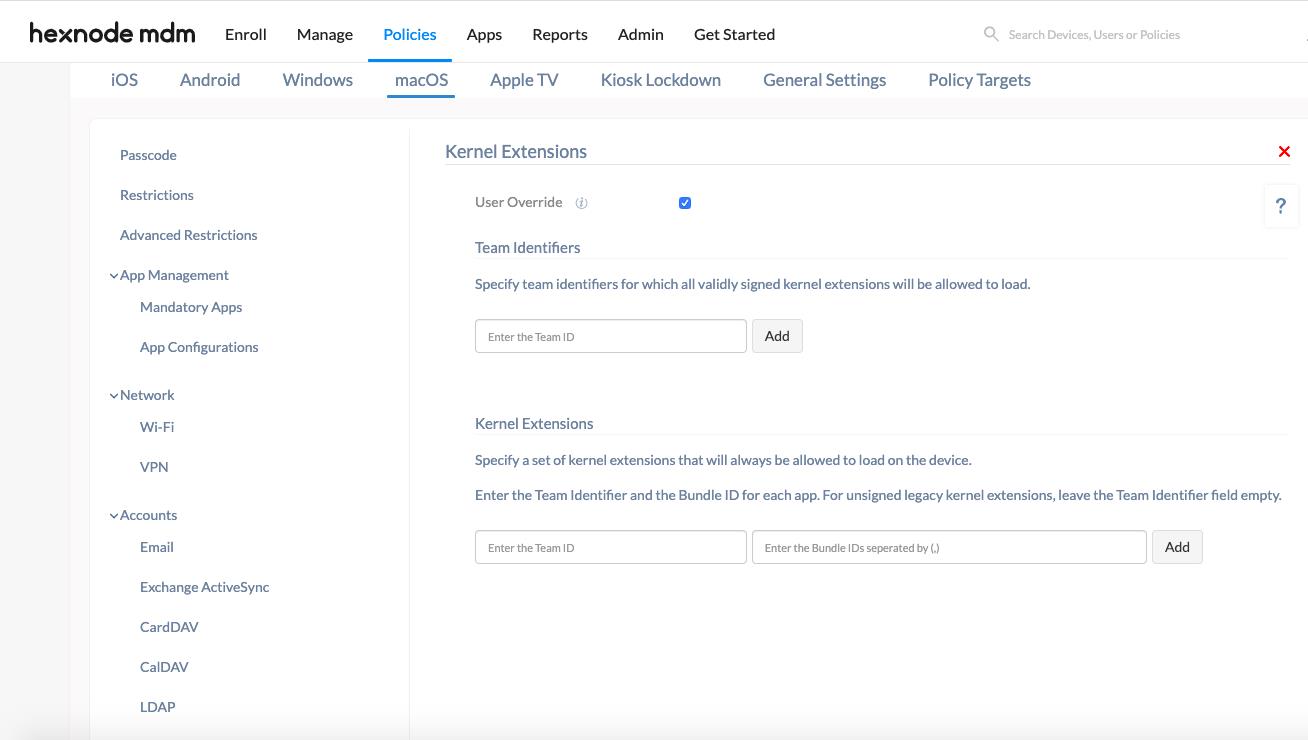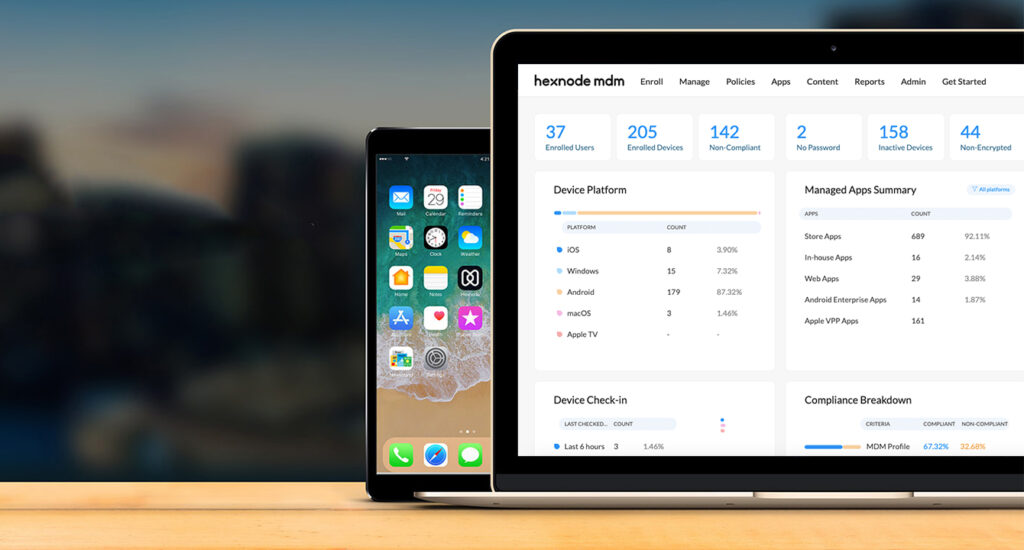In January 2020, the team at Hexnode was pretty excited over being a part of MWC (Mobile World Conference) 2020 in Barcelona, Spain. Plans were made and preparations were in full swing to make it a memorable experience for everyone. However, MWC had to be canceled due to the COVID-19 pandemic. I think it was around then that the full seriousness of the situation registered. Back then, we were still optimistic and felt like it would all pass over in a couple of months. We all know how that turned out, don’t we? The COVID-19 pandemic affected billions of lives around the world, either directly or indirectly. While it was certainly an unanticipated disaster, I must say that I am impressed with how we banded together regardless of race, creed, or gender to fight the pandemic in a million different ways. We saw no dearth of innovations as everyone endeavored to make lives just a little bit easier in the “new normal”.
At Hexnode, the utmost priority was the customers. Now that working from the office was no longer an option, employees from around the world started working remotely from the safety of their homes. Remote device management was not a luxury, it was a requirement. To continue providing seamless device management capabilities to customers around the world, Hexnode took prompt action against the pandemic.
Read more on Hexnode’s response to the pandemic.
While ensuring continued service to the customers, the team at Hexnode also worked relentlessly to release new features that were in demand. Here are some features you cannot miss:
- Okta Integration with Hexnode
- What is Okta?
- What does the Okta integration mean for Hexnodites?
- Scripting for Windows
- How to execute scripts in bulk for Windows machines?
- Scripting for Mac
- How to execute scripts in bulk for Mac?
- Media Management for Mac
- How to configure Media Management for Mac?
- Active Directory binding for Mac
- How to bind macOS devices to the Active Directory in bulk?
- Always On VPN for iOS
- What is Always On VPN?
- How to configure Always On VPN for iOS?
- Broadcast Message for Mac
- Kernel extensions for Mac
- What are kernel extensions?
- How to load kernel extensions to Mac with Hexnode?
- Location Tracking for Mac
- Integration with Microsoft Windows Defender
- What is Microsoft’s Windows Defender?
- How to use Hexnode’s integration with Windows Defender?
- Steps to configure Windows Defender settings with Hexnode
- App Catalog for Mac
- How to setup an App Catalog for Mac?
- Remote File Manager for Android
- Using Remote File Manager
- Adjust the remote view video quality in Android
- New Android Kiosk Settings
- Key highlights of HexCon20
- New Feature Announcements
- Breakout sessions
- Hexnode Academy and Hexnode Certification
- Networking events, fun games, and SWAG
- Summing up 2020
Okta Integration with Hexnode
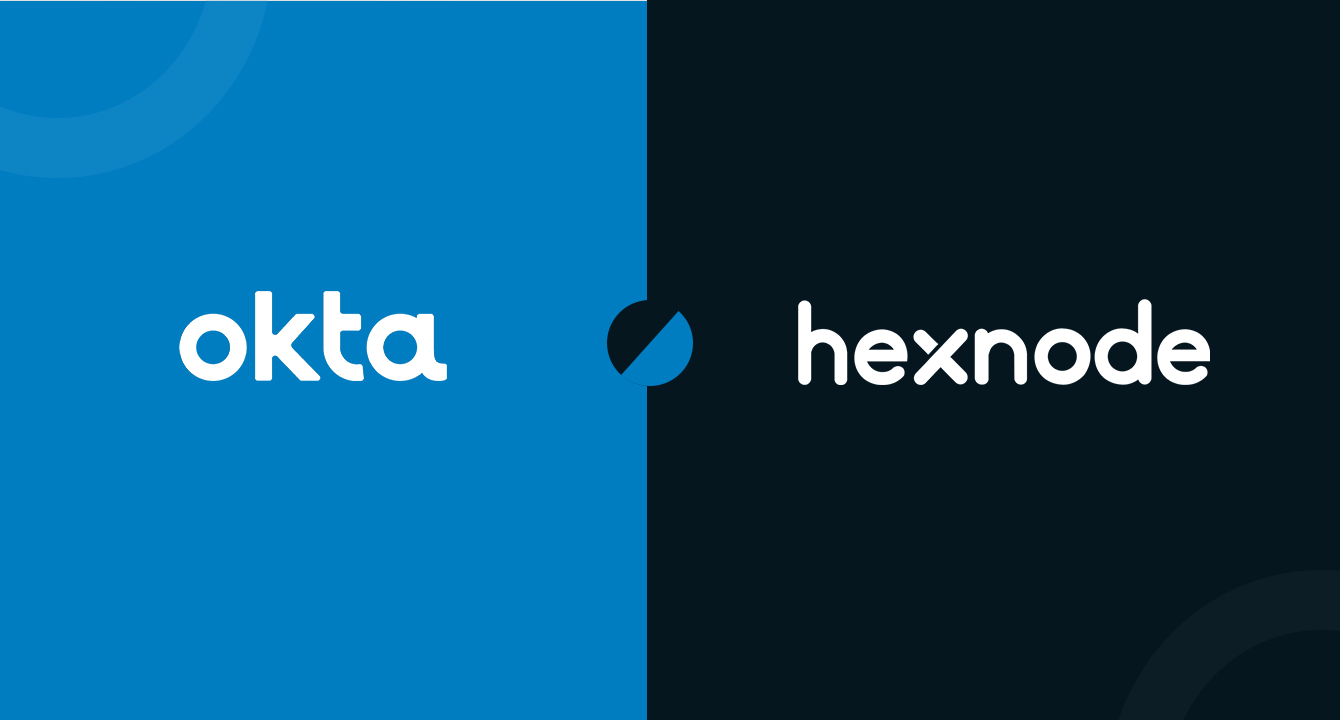
What is Okta?
Okta is a cloud-based identity access management solution that is widely used by organizations worldwide to secure identities within the organizations. The Single-Sign-On (SSO) feature from Okta is an especially popular feature that allows the users to sign in to multiple applications using a single credential for authentication. Integration of Okta with Hexnode has been a feature that was very much in demand among the customers.
What does the Okta integration mean for Hexnodites?
Integrating Okta with your Hexnode account, you can achieve higher standards of device and identity management. Here are the things you can do after integrating your organization’s Okta account with your Hexnode account:
- SSO login for technicians using Okta authentication
- Sync users and groups from the Okta domain to Hexnode’s web console
- Enrollment of Android, iOS, Windows, and macOS devices with Okta authentication
Scripting for Windows

Scripts are an extremely convenient method to streamline the routine and time-consuming tasks for busy system administrators. A script is a series of commands in a scripting language that automates the execution of tasks without any manual interruption. Hexnode allows you to execute custom scripts in managed Windows machines in bulk. Powershell scripts (.ps1) and batch files (.bat or .cmd) are supported.
Scripting for Mac

A feature that has been in much demand, Hexnode finally ended the wait in 2020. Now, the IT admins can completely manage their Macs and simplify the endpoint management by executing custom scripts. Some common and interesting use-cases are uninstalling applications, setting up app configurations, or even changing the device settings at the system level. Using Hexnode, these scripts can be executed simultaneously in all of the managed endpoints with a single click.
Media Management for Mac
Security never goes out of fashion. In a race to make the managed devices more secure, Hexnode introduced the feature Media Management for Mac last year. The Hexnode admin has control over all the external/internal media, disk images, and optical media on the macOS devices. In addition to configuring advanced settings, Hexnode allows the admin to allow/deny the media use from users so that only authorized users can access the media.
Active Directory binding for Mac
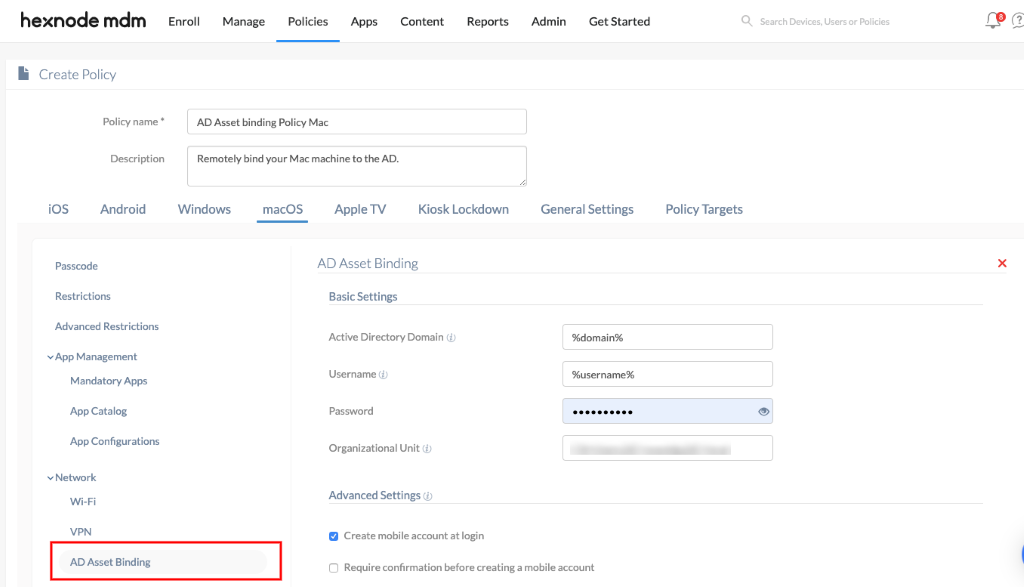
Before: To set Active Directory as the primary identity provider, the IT administrator would have to bind each managed macOS device with the AD manually. Sounds tedious, doesn’t it?
Now: Use Hexnode to remotely bind the managed Mac machines to the Active Directory.
Always On VPN for iOS

What is Always On VPN?
Sometimes, the situation demands for the managed device to be connected to a VPN at all times. Always On VPN gives full control over the device traffic to the organization as it tunnels the traffic back to the organization. So now, the admin can monitor and filter the traffic, secure the data transmission within the network, allow traffic from selected captive networking apps outside the VPN tunnel, and more. The admin can exempt certain system services such as Voicemail, AirPrint, and Cellular Services from connecting to the Always On VPN.
Broadcast Message for Mac

Jack is a system admin. He wants to broadcast a message to all his 100 Mac users warning them not to install the latest software update. What are his options?
With Hexnode, Jack can simply select all the macOS devices and execute a “Broadcast Message” action. All he would need to do is to type in the message and click send.
Kernel extensions for Mac
What are kernel extensions?
Kernel Extensions (or KEXTs) is a bundle that extends the kernel. It provides the developers with the ability to load the kernel extensions at the end user’s devices dynamically. The kernel extensions could be loaded without the user’s consent before the macOS High Sierra update. For the devices running macOS High Sierra and the higher versions, the admin can use Hexnode to whitelist kernel extensions that can be loaded without the user approval to the managed devices.
Location Tracking for Mac
For a system admin, the location tracking feature is of prime importance. Hexnode introduced the location tracking feature for Mac at the beginning of 2020. With Hexnode, the admin can now fetch real-time locations, track lost or the stolen devices with ease, and retrieve the complete location history of the managed Macs. From Hexnode’s dashboard, the admin can track the live location of the devices. The admin can also create geofences and apply restrictions outside the fence. Get creative, and let us know how you think the location tracking feature for Mac can be used by the system admins in the comments.
Integration with Microsoft Windows Defender
What is Microsoft’s Windows Defender?
Microsoft Windows Defender is an anti-malware tool that is a component of the Windows 10 operating system. Windows Defender offers real-time protection to the devices so that the users can use their devices without any fear of viruses, malware, or other such threats.
How to use Hexnode’s integration with Windows Defender?
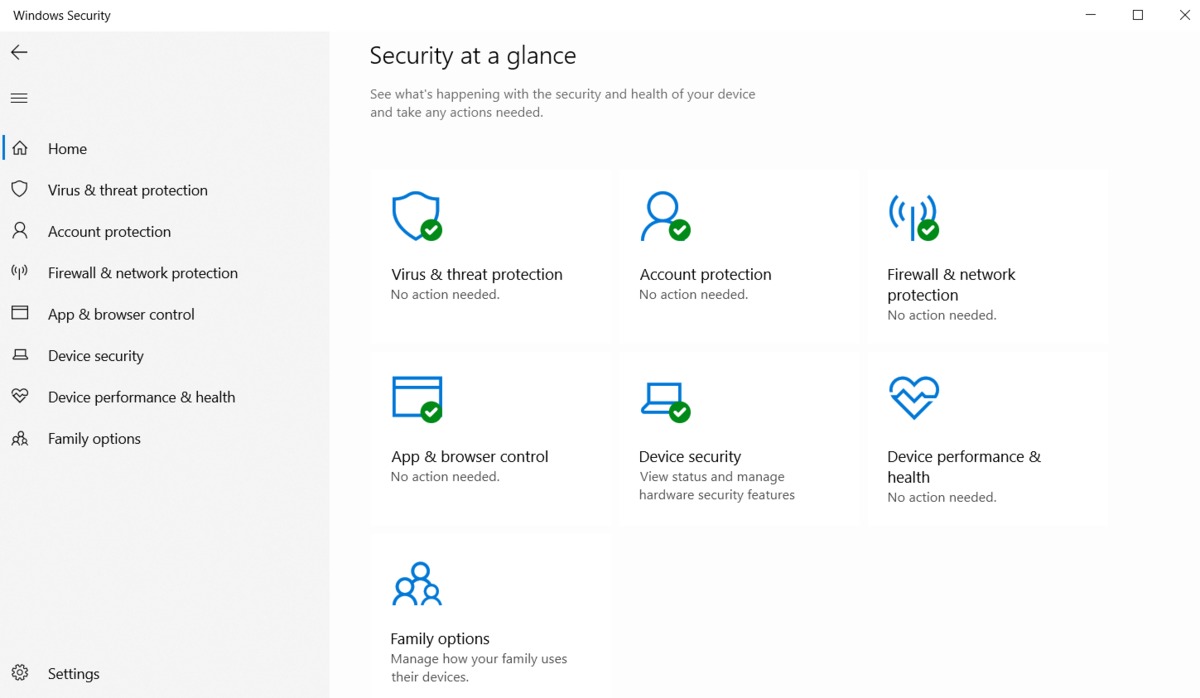
Hexnode allows the IT admins to configure both the Windows Defender Application Guard and Windows Defender Security Center (WDSC) settings. The Application Guard is designed to secure and protect the devices by enforcing browser isolation if a user accesses a site that is deemed untrustworthy by the organization. The admin can configure settings such as clipboard behavior, print behavior, data persistence, camera and microphone access, and more. The Security Center is a built-in UWP app that offers real-time protection for Windows 10 devices. The Hexnode admin can app and browser protection, hide secure boot area or ransomware data recovery area, and more.
App Catalog for Mac
An organization often uses a set of apps. These apps are either absolutely essential for working in the organization or are productivity tools. App Catalog for Mac is a convenient feature that allows the admin to set up a custom app store in the managed Macs. The admin can configure multiple app catalogs for targeted user groups to provision the apps efficiently.
Remote File Manager for Android
Using Remote File Manager
- Go to the Android device page.
- From the File Explorer sub-tab, click on “Open File Explorer”.
- All the files and folders in the internal storage and SD card would be listed. You can now move/copy/delete these files and folders.
Adjust the remote view video quality in Android
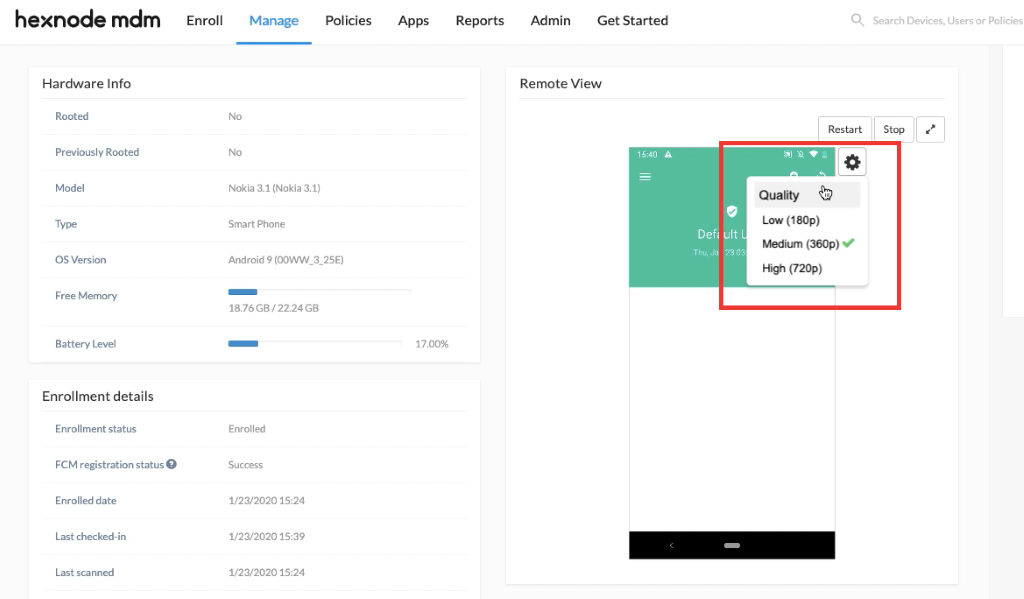
Now, the Hexnode admin can adjust the video quality while remotely viewing the managed Android devices, saving up on data charges. The Hexnode admin has three options: Low (180p), Medium (360p), and High (720p).
New Android Kiosk Settings
Several new settings were introduced to Android Kiosk mode. Previously, advanced kiosk settings were supported only if Hexnode Browser Lite was the default kiosk browser. Now, the support for these settings has been extended to Hexnode Kiosk Browser too. Manual kiosk exit has been made easier if the admin desires it. The admin can choose to show the option for manual exit in the peripheral settings in Android Kiosk mode. The user can then exit the Kiosk mode using the exit password provided by the admin.
The features listed here are really just a drop in the ocean. For a complete list of all the new features released, refer to our release notes.
Hexnode had other great things planned for 2020. We had planned to host Hexnode’s own User Conference to interact with our customers and partners and to provide networking opportunities to endpoint security experts throughout the world. Hexnode made history with HexCon20, Hexnode’s first ever user conference. The event was conducted entirely virtually and was joined by experts and endpoint security enthusiasts from different parts of the world. Spanning over two days (Dec 2-3, 2020), HexCon20 was a resounding success. It was such a success that initially, our streaming servers broke from all the traffic. But that is a story for another blog.
Key highlights of HexCon20

Call me biased, but HexCon20 was unarguably one of the best user conferences I have ever attended. Despite the limitations of conducting the entire conference virtually, there was something for everyone. New feature announcements, breakout sessions for knowledge-hungry peeps, a golden opportunity to get certified as an Hexnode expert, excellent networking opportunities, fun games, exciting gifts, the list does go on.
New Feature Announcements
A whole new look for Hexnode MDM was revealed, with new customizations and an even more attractive UI. The most exciting part was undoubtedly the unveiling of the new product: Hexnode Do.
“Hexnode Do aspires to be a pinch of data loss prevention a whole lot of SaaS operations, with equal parts of User security and Employee lifecycle management”, says Bijo, Co-founder and COO at Hexnode.
The first version of Hexnode Do is expected to be up and running by Q1 of 2021.
Breakout sessions

Zero Trust Security
Staying updated and educated is important in the field of enterprise security. We got to hear from some best minds in the industry on trending topics such as Zero Trust, cybersecurity, tips for endpoint security and more.
Training sessions were also held for Hexnode enthusiasts on popular topics like Mac and Windows Management.
Check out HexCon 20 Day 1 and Day 2 Highlights to know more.
Hexnode Academy and Hexnode Certification

Hexnode Academy was introduced for Hexnode geeks who wished to become an expert in endpoint management. There are two levels of certification: Hexnode Certified Professional and Hexnode Certified Expert.
Hexnode Certified Professional covers all the basics of UEM, enrollment methods, app management, kiosk management, remote management capabilities, and more. This program is designed so that even absolute beginners can learn the ropes around endpoint management.
Hexnode Certified Expert is an expert level program for Hexnode Certified Professionals. This program covers advanced device management capabilities, security policies, integrations, and more. This certification proves the expertise in device management with Hexnode.
Networking events, fun games, and SWAG

With live meeting rooms and chat sessions, there were plenty of networking opportunities for like-minded enterprise security enthusiasts. The attendees even had the chance to have a one-on-one chat with Apu Pavithran, CEO at Hexnode.
Now, what is a conference without some games? At HexCon, the attendees had fun playing games like Among Us, Pictionary, Scavenger Hunt, word puzzles, and virtual trivia. With lucrative prizes and even swag directly mailed to their homes, there was certainly some excitement
Summing up 2020
One of the most commonly heard phrases in 2020 was “in these turbulent/trying times”. The term is quite apt, as all of us kept trying to acclimatize ourselves to this new, unfamiliar world, all the while trying to keep fear of the pandemic at bay. While we cannot say that 2020 was the best year, we can be absolutely proud that we did not let the pandemic defeat us. Hexnode played its part in keeping up the standards of endpoint security and device management, with new and essential features, and even hosting the first ever HexCon virtually. We look forward to what this year brings, a year (hopefully) defeating the pandemic for good.


